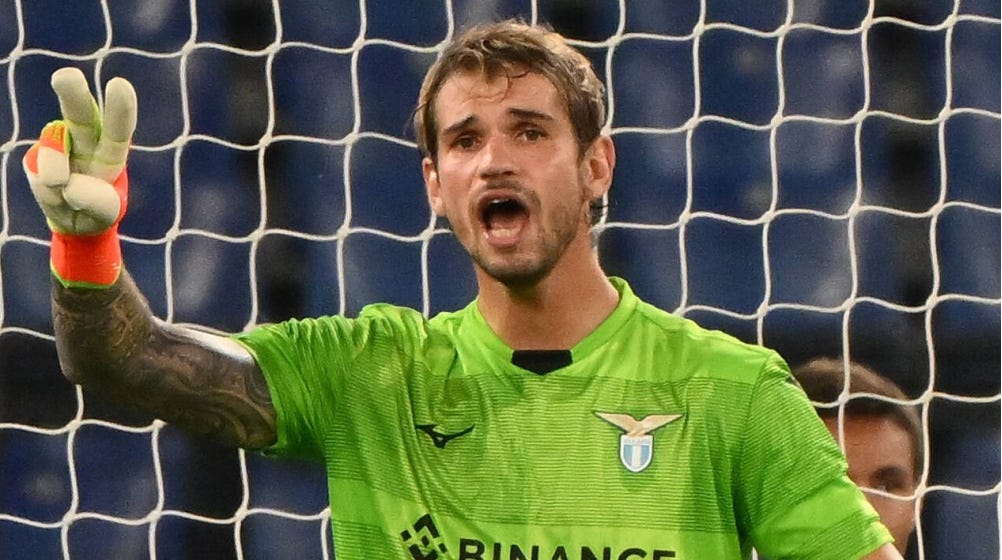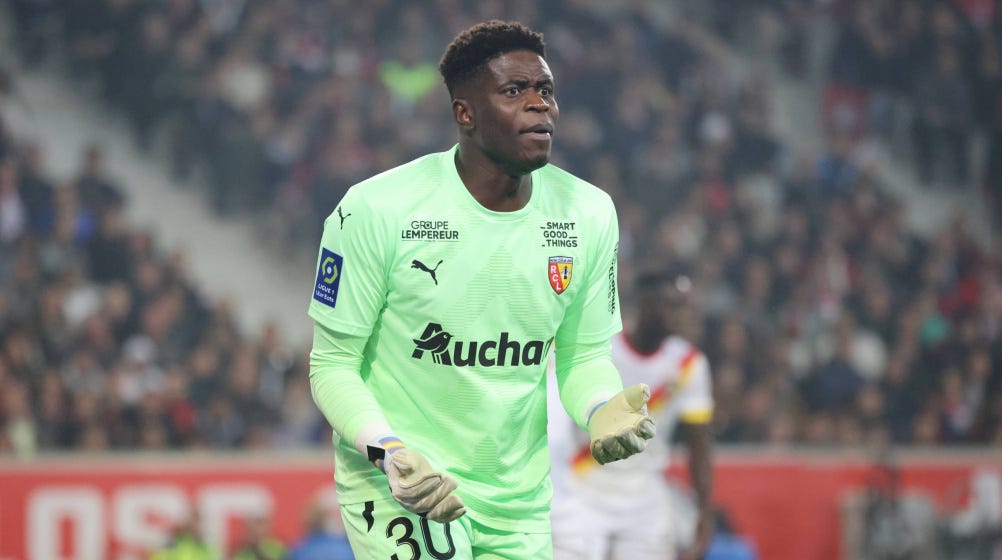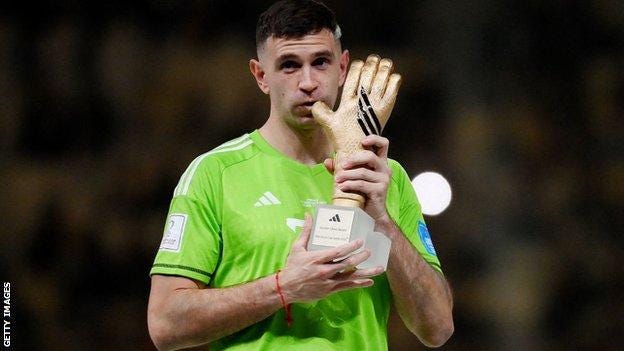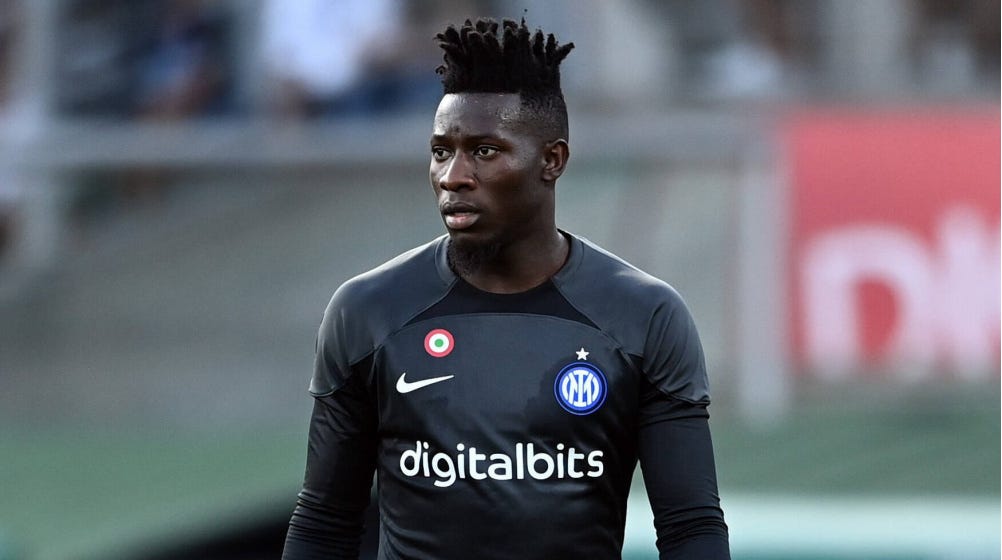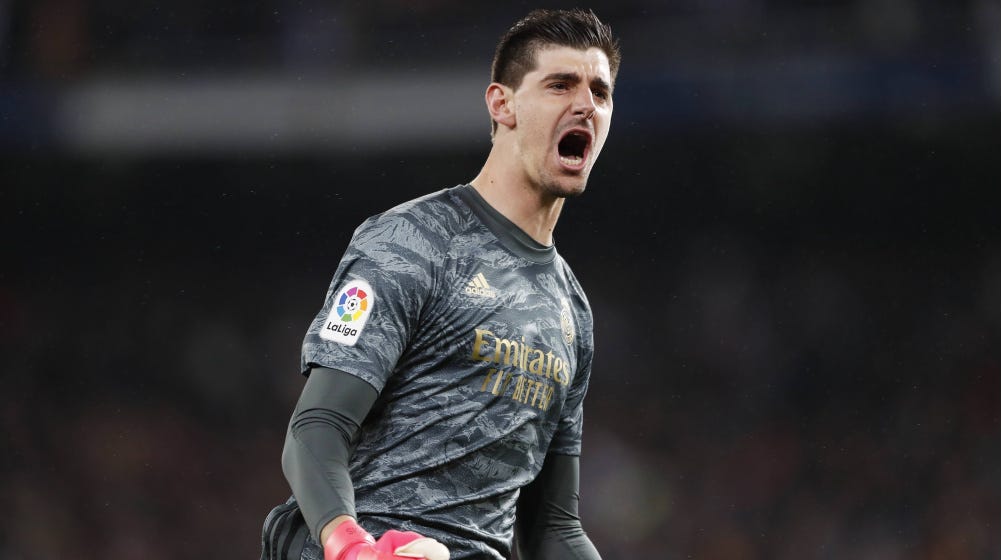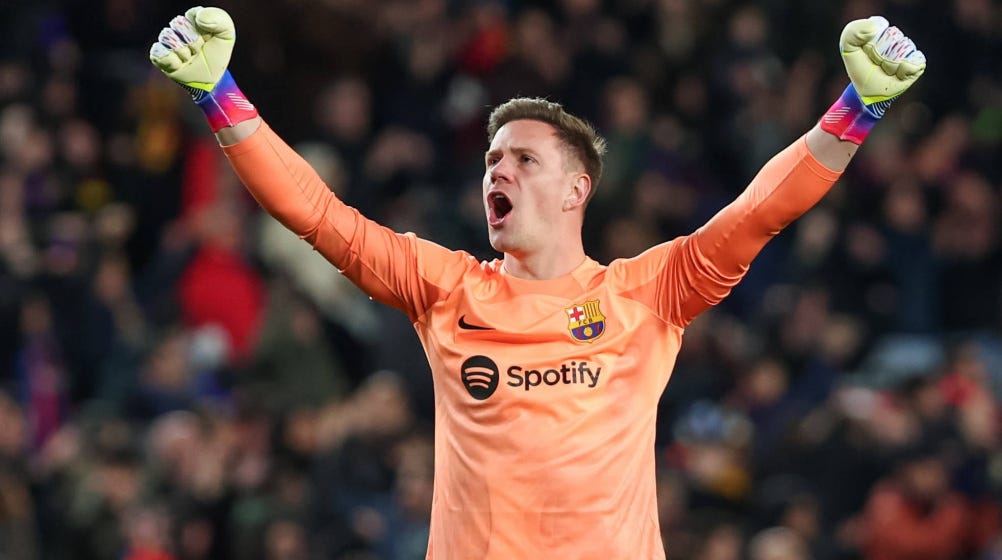Recently, ESPN published their lists for the ten best players in each position. It provoked discussion, interest, and bafflement in equal measure, not least in myself. I felt that, though an admirable goal, the list lacked due diligence and in-depth research, which prevented it from being a truly comprehensive ranking. It needed saving from its own short-comings and so I have resolved to compile my own rankings, based, I hope, of a more in-depth appreciation for each player’s performances in the 2022/23 season.
These rankings are compiled purely on the basis of a player’s performances in the 2022/23 season. The overall quality of a player is of course taken into account, hence the list is dominated by player’s plying their trade in Europe’s top-five leagues, but what is most important is how this quality was utilized throughout the course of the season.
In assessing performance, domestic, European, and international tournaments have all been taken into account. Though domestic football provides a greater sample-size and therefore a greater statistical barometer for player performance, I see no reason to give it disproportionate weight against knock-out competition. Football is about stories and achievements, and so performances in the World Cup or Champions League must sit alongside league performances.
This article will count-down the top-ten goalkeepers of 2022/23. The most scrutinized position on the pitch, a goalkeeper must match mental fortitude with technical ability. The modern goalkeeper must also possess an ever-increasing range of skills to excel at the elite-level. No longer just a shot-stopper, a goalkeeper must also command his area, sweep behind his defensive line, and be confident with the ball at their feet. All the goalkeepers on this list excel in at least one of these areas, with the best excelling in all.
10) Gianluigi Donnarumma (PSG/ Italy)
After a difficult first season in Paris, Donnarumma has seemingly found his feet at the Parc de Princes. He has established himself as PSG’s undisputed number 1, being the first keeper since Alphonse Areola in 2017/18 to register more than 30 appearances in goal for the club in a single season. This has been particularly important in an injury hit season for Les Parisiens. Ramos, Marquinos and Kimpembe, the normal trifecta of central defenders, have spent time on the treatment table, meaning Donnarumma has been crucial in maintaining a stable defence.
It is his shot-stopping which is most impressive. Measured by Post-shot expected goals (PsXg), a measurement which takes into account ball placement and shot power to construct a model for how many goals a goalkeeper would be expected to concede, Donnarumma ranks in the top 8 percent of goalkeepers in Europe’s top-five leagues. His 120 saves and 13 clean sheets kept were vital as PSG won Ligue 1 by just a single point, beating out Lens.1
Criticism persists, however, around his distribution. He possesses the shortest average pass length of all keepers in Ligue 1 at just 23.6 yards, attempting fewer long-range passes than any other keeper. Of course, this is partially a stylistic choice as PSG seek to build-up from the back, yet even when Donnarumma elects to go long, his pass completion is a somewhat mediocre 52.3 percent. Variation in passing distance is crucial for the modern keeper. When teams press high, a keeper must be able to bypass a press by accurately kicking long, as the likes of Ederson and Brighton’s Jason Steele do so excellently.
In an interview before the Euros in 2021, when asked about his career, Donnarumma answered that ‘I want to have a great European Championship and then I want to become the best goalkeeper in the world…My passion has always been goalkeeper’. Donnarumma did indeed have a great European Championships, and his passion for goalkeeping is evident in his shot-stopping ability. However, in the modern era, goalkeeping is not enough. To play with your feet is indispensable, and it is this flaw in his game which will likely prevent him from fulfilling his ambition to be the world’s best.
9) Ivan Provedel (Lazio/ Italy)
When Ivan Provedel was signed from Spezia in August for a measly fee of €2m, he was not even meant to be Lazio’s number one goalkeeper. That mantle was intended for new arrival Luis Maximiano, a €10m acquisition from Grenada. When Maximiano was sent off six minutes into his Serie A debut against Bologna for handling the ball outside his area, Provedel was given the opportunity to come into the line-up and impress. He never looked back. Provedel started every one of Lazio’s remaining fixtures as the club finished second in Serie A behind Champions Napoli.
Conceding just 30 goals all season, the best record in Serie A, Provedel was rewarded with the league’s best goalkeeper gong. His twenty-one clean sheets were a league high, tying the post-1994 record. This was down not just to excellent shot-stopping, where Provedel conceded 2.4 less goals than he would have been expected to concede, but also his ability to sweep behind Lazio’s high-line. The Italian ranked in the top 12 percent of goalkeepers in Europe’s top-five leagues for defensive actions outside the penalty area.
Just as important was his ability with the ball at his feet. Maurizio Sarri, more than any other coach in Italy, favours a possessional style of football, and so his keepers must be able to participate in build-up play. A capable short passer, Provedel excels in long-passing where his completion percentage of 62.4 percent ranks him as the fifth most accurate long-passer in Europe’s top-five leagues. Not only contributing to a fantastic defensive record, therefore, Provedel can also take some credit for Lazio’s 60 goals, as his distribution allowed for them to build-up from the back and control play.
At 29 years old and having achieved little of note throughout the rest of his career, this is something of a late bloom. He has found an environment in which he can feel confident to play his best football. This is not the fulfilment of some latent potential which people always felt he had within him. Instead, it is the fulfilment of the hope that, with hard work and an ounce of good fortune, any person can rise to become one of the best in their field.
8) Brice Samba (Nantes/ France)
Few players turn down the opportunity to play in the Premier League. The money, the attention, the glory, all act as a magnet which for most proves irresistible. For Brice Samba, however, the siren call of English football did not tempt him onto the rocks. Rather than staying with newly promoted Nottingham Forest, Samba instead returned home to France, and to Nantes, where, to quote French head coach Didier Deschamps, ‘he has everything going for him’.
Samba provides the last line in a formidable Nantes defence which conceded the fewest goals (28) in Ligue 1 last season. His PsXg numbers rank him as Europe’s tenth best shot-stopper, conceding 5.4 goals less than he would have been expected to have conceded, whilst his 15 clean sheets secured himself the league’s golden glove. This shot-stopping ability is paired with a fantastic ability to command his area and claim crosses. 8.9 percent of crosses into the Nantes penalty area were stopped by Samba, ranking him in the top six percent of keepers in Europe’s top-five leagues.
His fantastic goalkeeping fundamentals have earned a well-deserved call-up to the French national team. In the squad for the March internationals, Samba eventually made his debut in June in France’s 3-0 win over Gibralter. A.C. Milan’s Mike Maignan remains the French number one but given his persistent injury troubles, it is re-assuring to Les Bleus that he has such a capable understudy.
7) Frederik Rønnow (Union Berlin/ Denmark)
Until November, Union Berlin sat atop the Bundesliga table. The surprise package of the season, victories over the likes of RB Leipzig, Borussia Monchengladbach, and Borussia Dortmund had left them in the unlikely position of setting the pace, just four seasons on from their promotion from the German second division. Innevitably, this form could not continue, as they were reeled in by Bayern and Dortmund, eventually finishing in a still remarkable fourth place, securing Champions League football for the coming season. The capital’s working-class club sure had put in the work, even if the footballing aristocrats eventually re-asserted their dominance.
None of this would have been possible without their goalkeeper Frederik Rønnow. Union’s success was built upon their defence as they finished the season with the joint best defensive record in the league, level with Bayern, conceding just thirty-eight goals. Rønnow consistently put in outstanding goalkeeping performances, finishing the season having conceded a highly impressive 8.2 goals less than he would have been expected to.
His 6ft 3in frame allowed him to fill the goal, but it also enables him to dominate his penalty area. Rønnow ranks in the top two percent of goalkeepers for crosses stopped (10.2 percent), taking pressure off his defenders in areal duels. This also allows Union to defend narrowly, clogging up the dangerous central zones and forcing their opponents into wide-areas, confident as they are in dealing with crosses.
The best goalkeeper in the Bundesliga this season, Rønnow also helped his side to the round of 16 in the Europa League, keeping four clean sheets as Union progressed through the group, and past Ajax in the round of 32, only to lose to Union Saint-Gilloise 6-3 on aggregate.
Like Samba and Provedal before him on this list, Rønnow has made remarkable progress over the last twelve months, even relatively late on in his career. After five years in the Bundesliga, playing as the second-choice goalkeeper in all of them, Rønnow has finally established himself as the number one. At the age of thirty, it is pleasing to see him gain such clarity, and put in performances which rank him as one of the very best goalkeepers in Europe.
6) Emi Martinez (Aston Villa/ Argentina)
The Lusail held its breath. 120 minutes of staggering, magnificent football had delivered no victor, Messi and Mbappe leading a ridiculous display of punching and counter-punching. Now came the penalty shoot-out, and, with Messi and Mbappe both converting from the spot, now came the time for a new man to seize the occasion by its throat. Diving sharply to his right, Emi Martinez beat away Kingsley Coman’s penalty, jumping wildly in celebration about his penalty area as Coman trudged back to the halfway line to be consoled by his teammates. Next up for France was the young Aurelian Tchouemeni. As he approached the spot, he made to take the ball from Martinez’s grasp. Instead of handing it over, Martinez simply through it away. The pressure ticked up another notch, and Tchouemeni couldn’t handle the heat, placing his penalty harmlessly past the post. It was all over bar the shouting. Gonzalo Montiel slotted away Argentina’s final penalty, and the blue and white wave of supporters inside the stadium, and across the world, erupted.
To say that Martinez won Argentina the World Cup would perhaps be exaggerating. This was Messi’s tournament, just as Mexico ’86 will always be remembered as Maradona’s. However, it is not overstating it to observe that Argentina would not have won the tournament without Martinez. His four penalty saves across two shoot-outs against the Dutch and the French were crucial as Argentina won the tournament. Just as important was his save against Randal Kolo-Muani in the dying embers of the final, which, had he scored, would almost certainly have secured France their second consecutive world-cup final. In the modern era, only Manuel Neuer in 2014 and Oliver Kahn in 2002 have given such memorable goalkeeping performances in a World Cup.
Martinez has also been excellent at club-level over the past season. Eleven clean-sheets and a PsXg of +2.6 (meaning he conceded 2.6 goals less than expected), were crucial as Aston Villa qualified for Europe following a late-season surge under Unai Emery. It seems remarkable that such a goalkeeper could ever be second-choice to Bernd Leno whilst he was at Arsenal.
This season has been career defining for Martinez. His triumphs at club and international level have given him a prominence reserved for only the very best players. For decades to come we will look back on that World Cup Final and remember the three ‘M’s’ that made it: Messi, Mbappe, and Martinez.
5) Diogo Costa (FC Porto/ Portugal)
“There is a star coming through. He’s called Diogo Costa. I think he’s going to be a superb goalkeeper”. These were the words of the great Iker Casillas back in 2018, at the time Porto’s number one goalkeeper. He had seen what others around FC Porto had seen, a player with the potential to be one of the very best players in the world.
2021/22 proved to be Costa’s break-out season, as Sergio Conceicao’s Porto romped to the league title, with Costa’s fifteen clean-sheets being the most in the league that season. This campaign, despite Porto surrendering their crown to Benfica, and Costa surrendering his golden glove award to their keeper Odysseas Vlachodimos, he has once again been outstanding.
What is most impressive is how well-rounded Costa is as a goalkeeper. He is of course an excellent shot-stopper, this season conceding 6.1 goals less than expected in the league, a record which extends into the Champions League where he conceded 3.7 goals less than expected. This included three penalty saves in three matches as Porto topped their group containing Bayer Leverkusen and Atletico Madrid. His distribution is also at the elite-level, particularly his long-passing. Against Leverkusen in the Champions League, Costa recorded an assist with a laser-guided-missile of a pass, perfectly firing a through-ball over the top of the Leverkusen defence and into the path of Wenderson Galeno, running in from the left, who would cut inside and score.
This potent mixture of shot-stopping and ball-distribution will surely prove too much for Europe’s top clubs to resist. His on-field maturity and his well-rounded game bely the fact that he is just 23 years old, an infant in goalkeeping terms. Already attracting interest from Chelsea, it seems inevitable that Costa will ascend to the very top of the European game, just as Casillas predicted. For now, however, Porto fans can enjoy watching the development of a master craftsman, who will surely only progress from strength to strength.
4) Andre Onana (Inter Milan/ Cameroon)
It was the game against Sevilla which likely proved the watershed. Having drawn 2-2 at Old Trafford, Manchester United travelled to Seville in search of a victory which would take them through to the semi-finals of the Europa League. Instead, disaster struck. Within 10 minutes, a poor pass from De Gea into Harry Maguire allowed Sevilla to pounce and En-Nesyri to slot home. A second goal followed early in the second half, before the coup de grace was delivered on 80 minutes, as another error from De Gea with his feet gifted En-Nesyri an open goal. It now became clear to even the uninformed that Manchester United needed to move past De Gea if they wanted to progress under Erik Ten Hag.
The man they have turned to is Inter Milan’s Andre Onana. Having first made his name at Ajax under Ten Hag, Onana made his way to Italy where he has continued to impress. His ability on the ball is what most impresses, and the attribute which Manchester United have been most attracted by. Whilst De Gea, as against Sevilla, is prone to mistakes with his feet and is reluctant to involve in himself in United’s build-up play, Onana is the very opposite. No keeper is more composed on the ball. He often steps up beyond Inter’s centre-backs in order to progress play, placing his studs on the ball to bait the opposition press and open up space in midfield. His long-passing is especially impressive, a skill on full display in the Champions League final where he often drilled passes into Edin Dzeko or Romelu Lukaku, as well as chipping balls over the City press towards the Inter wing-backs.
This focus on his ball-playing abilities is not to suggest Onana is not highly proficient in the more fundamental aspects of goalkeeping. He is confident in commanding his penalty area and also good at sweeping behind his defensive line. Though he is required to do very little sweeping at Inter (0.42 actions outside of the penalty area per 90) due to their more conservative play style, his numbers at Ajax under Ten Hag jump up to an impressive 1.85 actions per 90. As always, context matters when analysing player performance.
Though his shot-stopping in the league was underwhelming, conceding 2.7 goals more than expected, it was in the Champions League where he truly excelled. A PsXg of +7.6 is the best in the competition in any of the previous five seasons, and was crucial as Inter progressed to the final. Though falling at the final hurdle against the all-conquering Manchester City, Onana demonstrated throughout the tournament why he is one of the best goalkeepers in the world. United are fortunate to have secured a goalkeeper of such quality.
3) Thibaut Courtois (Real Madrid/ Belgium)
Set in contrast to the previous campaign, this season may look like something of a comedown. As Madrid surrendered their domestic and European crowns, Courtois, a keeper of astounding ability, could not stop the shifting tides sweep away Madrid’s success. The Belgian was equally powerless in the plight of his nation, with Belgium crashing out at the group stage in Qatar, an ignominious end to his country’s golden generation.
To view the season like this, however, would be to suffer from a serious lack of perspective. The 2021/22 season for Courtois was career-defining. In both domestic and European competitions, he rose triumphant, delivering one of the all-time great performances in the Champions League Final, saving nine times as Real Madrid defeated Liverpool 1-0. It is no surprise that Courtois was unable to emulate these staggering heights. Even so, Courtois has undeniably been one of the best goalkeepers in the world this season, bringing calmness to an often-chaotic Madrid defence.
Ancelotti has never been known for his disciplined defensive play. Players are left to combine freely and fluidly, which can deliver exciting attacking performances, yet leaves the defence vulnerable. In order for this to work, defensive players of the highest calibre are required. Courtois fits this standard. His shot-stopping is highly attested to. Courtois saved 0.7 goals more than expected in LaLiga this season, a solid return, yet it is in the Champions League where once again he excelled. 5.5 less goals conceded than expected ranks him as the second-best keeper in the tournament.
No keeper excels in goalkeeping fundamentals as much as Courtois. His ability allows him to exude a presence on the pitch, attenuated by his giant 6ft 6in frame, matched by few other goalkeepers. When Madrid go forward, they can be confident that their goalkeeper has their back. This makes Courtois not just one of the best goalkeepers in the world over the past season; it also makes him a true all-time great.
2) Marc-Andre ter Stegen (Barcelona/ Germany)
It was not long ago that Barcelona considered selling Marc-Andre ter Stegen. His hefty wage-packet and underwhelming performances were putting serious strain on the club’s confidence in their keeper, as they faced down a series of financial difficulties. In the face of this, ter Stegen could have been forgiven for withdrawing, weighed down by the rumour mill which constantly linked him with moves away from Camp Nou. It is a measure of his character that he instead stood up to be counted and delivered the best season of his career.
Twenty-six clean-sheets highlight his immense contribution to Barcelona’s title-winning campaign. It is the joint most clean-sheets ever kept in LaLiga history, level with Deportivo’s Francisco Liano’s campaign of 1993/94. This, combined with his eighteen goals conceded, were the best goalkeeping figures in Europe. Where Spanish strikers sought plenty, ter Stegen left them with nothing.
While Barcelona’s defence as a unit deserve plenty of credit for these miserly defensive numbers, the underlying stats demonstrate ter Stegen’s unique importance to their achievements. His shot-stopping ranks as the third best in Europe, as he conceded 8.7 goals less expected, whilst his save percentage of 84.7 percent was the best in all of Europe’s top five leagues. With Pique retiring, ter Stegen also took on a greater leadership role in a young Barcelona defence. He marshalled the backline, as well as his own goalkeeping abilities, as Barcelona conquered Spain.
With ter Stegen, however, it is insufficient to talk solely about his keeping abilities. Where he really sets himself apart is with the ball at his feet. A pass completion of 84.5 percent leaves him in the top ten percent of goalkeepers. His long-passing is particularly good, with his 64.2 percent completion rate rendering him the second best long-passing goalkeeper in European football.
As an all-round package, then, ter Stegen is almost unrivalled. The best goalkeeper in Spain this season, he has delivered stellar performances and has handed to Xavi the LaLiga trophy. A novelty for Barcelona, it was not exciting attacking play which won it, but rather an imperious defence spearheaded by the man between the sticks. Long may he flourish.
1) Alisson (Liverpool/ Brazil)
Not since Manuel Neuer was in the prime of his career has Europe seen such a dominant goalkeeper. In an often-chaotic season for Liverpool, as they limped to 5th place in the league, Alisson has been one of the few sources of light in the darkness. Again and again, he has bailed out a wide-open Liverpool defence. Though the reds will hope that next season will require their keeper to put in less work, it is mightily reassuring to have someone as omnicompetent as Alisson as their last line of defence.
And omnicompetent really is the right word to describe Alisson; there is not a facet of his game which lets him down. A modern, progressive goalkeeper, his passing is of course excellent. A completion rate of 85.5% places him in the top 6% of goalkeepers in Europe’s top-five leagues. And these passes are not confined to merely short, simple passes, as Liverpool very often look to play more directly into their front players in order to bypass an opposition press and strike quickly at their opposition’s backline. Alisson is perfect for this role, with his long-pass completion of 58.2% putting him in the top 8% of goalkeepers. Few goalkeepers in the world are as good with their feet.
In the modern era, however, a keeper must not only be more connected with their team in possession, forming a part of their build-up play, but must also be more connected to their team out of possession, by starting higher and sweeping behind their defensive line. This is especially important for Liverpool, as their high-line and offside trap ploy make them especially vulnerable to passes played in behind their defence. Once again, Alisson proves himself to be one of, if not the best in the world at this facet of the game. 2.2 actions outside the box per game is the most in Europe’s top-five leagues, meaning Alisson can stop chance creation at its source without even having to make a save.
And yet when he is called-upon to make a save, nobody in the world is better. His PsXg of +10.1 ranks him as the best shot-stopper in Europe. Without these saves, it is highly unlikely that Liverpool would have secured European football for the upcoming season. Quite simply, therefore, Liverpool’s season was built upon Alisson’s back. He is the complete goalkeeper. In the immortal words of Carly Simon, nobody does it better.
All Data used is from FBref.





